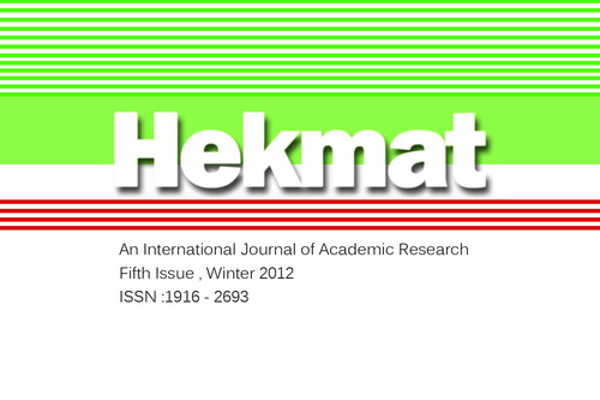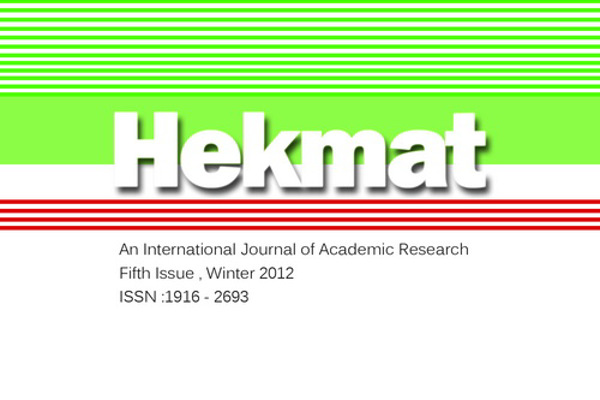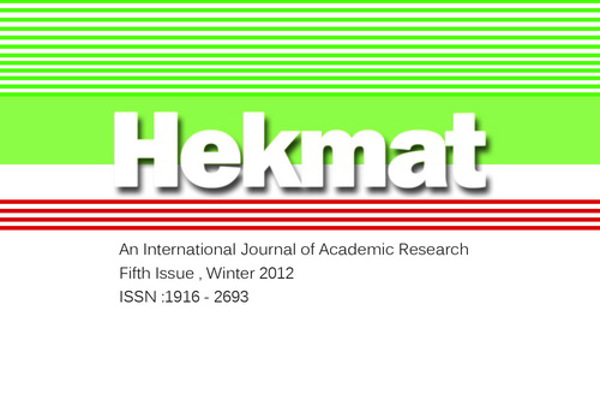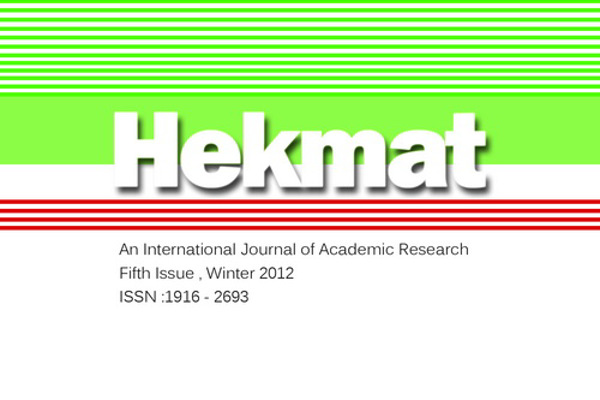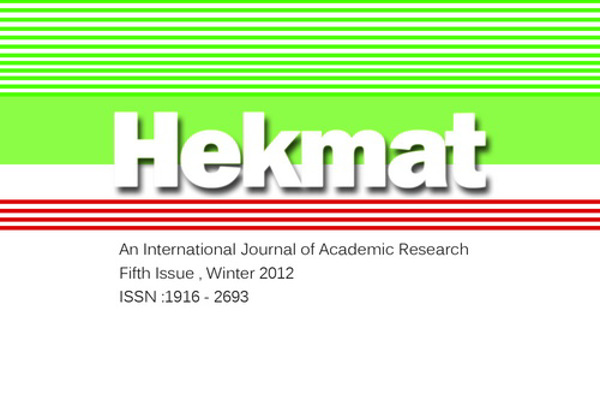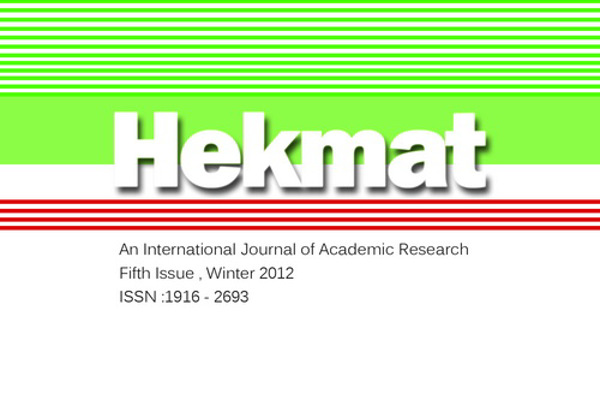Islamophobia
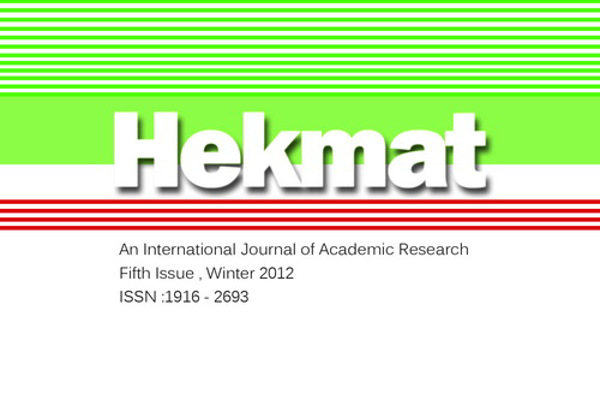
Islamophobia
(OSCE 2009 Human Dimension Implementation Meeting Working Session 10 - Combating Intolerance and Discrimination against Muslims)
Contribution by Ambassador (R) Ömür Orhun, Adviser and Special Envoy of the Secretary General of the Organization of Islamic Conference (OIC)
Introduction
On behalf of the Organization of the Islamic Conference (OIC), I would like to express our appreciation to the OSCE for the importance it has given to combating intolerance and discrimination against Muslims, which is also a priority for the OIC. In this respect, I want to recall OIC’s vision of moderation and modernization and its proactive role in combating extremism, discrimination and intolerance in general. I am also pleased to refer to the OIC Observatory’s Annual Reports on Islamophobia, which cover a wide spectrum of measures to struggle with this phenomenon.
In the globalized world we now live, different forms and shapes of human interaction have changed our societies. They have also brought about new challenges. One of these challenges is ignorance; ignorance about the other; ignorance of other peoples, cultures and religions. As we repeatedly observed during the past few years, ignorance leads to fear, mostly based on false premises.
Ignorance of this kind can only be overcome through respect to “the other”, dialogue, education and understanding.
Image of Islam and Muslims in the West
Although there are some who argue to the contrary, the notion that Islam is the enemy of the Western civilization is not only false, but it is also misleading. In that respect, it must also be underlined that Muslims are not a monolithic entity prone to all kinds of extremism.
On the other hand, we have to make a distinction between those who claim that Islam is a threat to the West, and those who advocate that Islam is a challenge to the West. As one of the three Abrahamic religions, Islam of course is not a threat; but it may be a challenge, since Islam and Islamic countries has the potential of coming to terms with the modern contemporary world. In that sense, the Islamic world is in a vibrant process of recovering its true identity and intellectual heritage.
In short, Islam and Muslims cannot be considered as a distant phenomenon, but their presence in the West is now an undeniable fact.
The Problem
Despite all efforts for the protection and promotion of human rights, acts related to racism, xenophobia and discrimination, as well as related intolerance persist in all societies.
The resurgence of intolerance and discrimination against Muslims, especially after September 11, coupled with related racist tendencies, challenge the exercise of fundamental human rights and freedoms of Muslims particularly in the Western countries. In spite of tangible progress in elimination of institutionalized and structured forms of discrimination, many countries still experience new and mounting waves of bias, exclusion and violence against Muslim groups and peoples.
Different international organizations and human rights bodies have recognized the need to struggle against all manifestations of discrimination and intolerance against Muslims and Islam, and have significantly strengthened their profile in this respect.
As documented by these organizations, Muslim communities in Western Europe and North America are experiencing an increasingly hostile environment towards them. This environment is characterized by suspicion and prejudice at times going back to history; ignorance; negative or patronizing imaging; discrimination including in education, housing and employment; stereotyping all Muslims or Islam in general as “terrorist, violent or otherwise unfit”; lack of provision, recognition and respect for Muslims in public institutions; and attacks, abuse, harassment and violence directed against person perceived to be Muslim and against mosques, Muslim property and cemeteries.
This phenomenon is called Islamophobia, which can also be defined in short as “fear or suspicion of Islam, Muslims and matters pertaining to them”.
Islamophobia has existed for a very long time, albeit in a rather subdued form, and is deeply rooted in prejudice. However, recently it became a topical issue, with devastating effects not only on the lives of the Muslim communities, but also on the societies where they live. Islamophobia, whether in the shape of intolerance and discrimination, or whether in the form of violence, is a violation of human rights and is a threat to social and political cohesion.
All major international human rights organizations have recognized that negative connotations of Islamophobia may lead to exclusion and self-exclusion of especially younger generations, with obvious negative results in terms of self-esteem and social integration. It is also acknowledged that, persistent forms of Islamophobia and in particular its repercussions through the mass media represent a threat to peace, stability and democracy.
Identifying Root Causes
We have to identify first of all structural root-causes of Islamophobia and anti- Muslim feelings and manifestations. In that respect, lack of formal and reciprocal relations between the State and the Muslim communities must be underlined. On the other hand, the vicious circle created through lack of proper knowledge of the language and social system of the country of residence on the part of Muslims, improper housing, improper or insufficient education, leading to unequal access to the labor market must also be taken into consideration. Sense of being rejected, stigmatization, marginalization, leading to lack of confidence in the State is the net result of this phenomenon. It should not be forgotten that such people are more prone to crime and illegal activities, as well as more susceptible to radical propaganda.
Secondly, perceptional and behavioral root-causes, in the form of prejudice - also against persons perceived to be Muslim; negative sentiments and display of such sentiments; media coverage and misrepresentation through mass media; and finally political discourse, especially by the far right, but recently also by moderates, must also be taken into consideration. As prominent observers have stressed, it has now become politically correct to attack Islam and Muslims, and this is making it hard for moderates on both sides to remain reasonable.
Thirdly, discriminatory practices in housing, schooling and employment; restrictions on provision of proper places of worship and burial places; attitude of law enforcement authorities especially in search and arrest and customs entry procedures; and harassment, vandalism and attacks that Muslims or persons perceived to be Muslim face are clear manifestations of Islamophobia. It should also be mentioned that, there is a deficit in many countries as far as definition of hate crimes based on religion, as well as lack of reliable data and monitoring, not to mention prosecution.
Remedies
To begin with, the historical, cultural, ethical and psychological depth of discrimination and intolerance against Muslims, as well as Islamophobia should always to be taken into full consideration. The need for an intellectual strategy to deal with this phenomenon should be accepted.
On the other hand, as a sound normative framework to combat intolerance and discrimination both in the international and national context does exist; what is needed is to put this normative framework into full use and implementation.
Discrimination and intolerance against Muslims is not only a matter of discrimination against a specific religious group, but it also deeply affects international relations as well as the internal stability of Western societies. As such, it is a multifaceted question and must be addressed through a holistic approach.
On the other hand, the quality of life of Muslims living in Western societies must be improved. This will lead to better understanding and better integration, thus to lessening of mutual mistrust. Muslims should not be seen as second class citizens, must not be demonized, marginalized, feared or despised.
Finally, but very importantly, the war on terror must not become a war on Muslims.
Implementation
It goes without saying that implementation of the measures to combat all manifestations of intolerance, discrimination and hatred must be implemented with dedication and vigor.
Therefore, first of all governments, societies and peoples must recognize the problem and be ready and willing to adopt a multifaceted approach.
Secondly, they must take account of the importance of the intellectual front in the fight against intolerance and discrimination against Muslims and devise a sound strategy in the fields of value systems and perceptions.
Thirdly, they must define hate crimes broadly and address the information deficit. That is to say, they must collect, analyze and disseminate information related to hate crimes.
Fourth, they must enact adequate legislation and implement this legislation effectively. In conjunction with national legislation, they should also implement international commitments and agreed norms.
Fifth, clear criteria for reporting and registering of hate crimes must be established and reporting of hate crimes must be encouraged.
Sixth, they should build the capacity of Muslim communities and civil society organizations and try to enable them to work with local and national authorities. In this respect, community outreach programs will be of great use in confidence building and in creating community cohesion.
Another point that deserves utmost importance is education. Especially younger generation should be provided with educational programs that would foster tolerance, understanding and respect to “the other.” Related to education is of course training of law enforcement officials.
Furthermore, in the field of public discourse related to Muslims and Islam, two points need to be underlined:
- a) Political rhetoric: Responsible politicians, both of the government and of the opposition, must underline the importance of correct and unbiased discourse and should also refrain from hate speech and other manifestations of extremism and discrimination. A message of encouraging tolerance, non-discrimination, understanding and respect to all must be voiced.
- b) The media: The media can play a positive role in promoting inter-cultural and inter-religious dialogue and harmony. This is what is expected from responsible journalism. On the other hand, the media may also play a very negative and divisive role in projecting wrong and inaccurate messages. Therefore, with due respect to the freedom of expression, governments can assist or encourage creation of self-regulatory media bodies to deal with manifestations of discrimination and racism.
Finally, integration policies: The more Muslim communities will feel at home and will be truly integrated to the Western societies where they live, the easier it will be to marginalize extremism, to defuse radicalism and to overcome the perceptions of being left-out, being stigmatized and being rejected.
It is argued, and rightly so, that Europe has not been successful in its bid for integration. While the objective was to create multi-cultural societies, instead parallel, but mutually exclusive societies were born. How to remedy this situation, which can also be characterized as cultural ghettos for Muslims? Civic and structural integration is the answer. Muslim migrants must have a sense of being part of the larger community in which they live, take part in all parts of life and participate in the decision making process. In other words, creating cohesive societies, where mutual understanding between diverse groups will facilitate not only the promotion of tolerance, but more importantly mutual respect for differing viewpoints and backgrounds. The key word here is “mutual”.
The Muslim communities, on the other hand, must shoulder their share of the burden, adopt the civic values of their new societies and distance themselves from radicalism and terrorism.
The real threat to tolerance and to multi-cultural societies emanates from the extremes of both groups. And here the governments and the public must remain vigilant. For peaceful co-existence to become a reality, we must reach those groups who do not wish to engage in dialogue and we must educate those who do not wish to learn or understand or accept the diversity that characterizes the Western societies.
The current political agenda is very much dominated by the necessity to ensure peaceful coexistence between different ethnic, racial and religious groups. As such, our operational instruments must be geared towards reducing and eventually eliminating discrimination as a source of tension, while promoting tolerance.
Politicians, on the other hand, must underline the importance of correct and unbiased discourse and should also refrain from hate speech and other manifestations of extremism and discrimination. A message of encouraging tolerance, non-discrimination, understanding and respect for all must be voiced.
In addition to politicians, the media also can and must play a positive role in promoting inter-cultural and inter-religious dialogue and harmony and in avoiding hate speech and wrong and inaccurate messages.
The Muslim communities, on the other hand, must shoulder their share of the burden, adopt the civic values of their new societies, seek not only rights but also meet their obligations and distance themselves from radicalism, violence and terrorism. Such an attitude will assist in dispelling misunderstandings, leading to respect for diversity. Additionally, they must report hate crimes fully and try to assist authorities in the follow-up process of such reports.
Finally, let me underline that more full listings of recommendations for combating hate crimes and related violence does exist in various form. By way of illustration I can cite the recommendations that have emerged from various civil society activities of the ODIHR, the last being the Roundtable in May 2009 that was held in conjunction with the Supplementary Human Dimension Meeting on Hate Crimes. I also wish to say that the Ten Point Plan for Combating Hate Crimes devised by “Human Rights First” draws a good framework in this respect.


